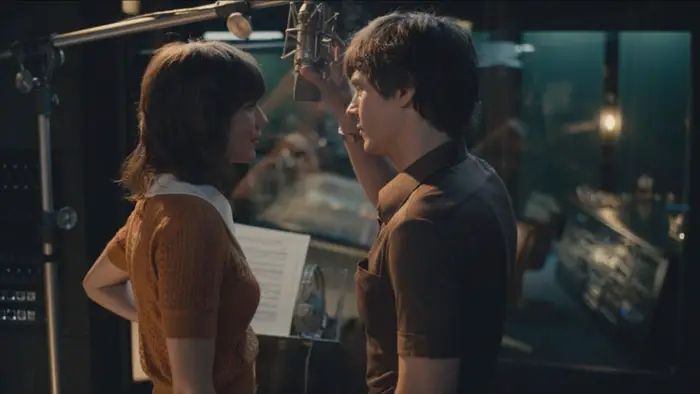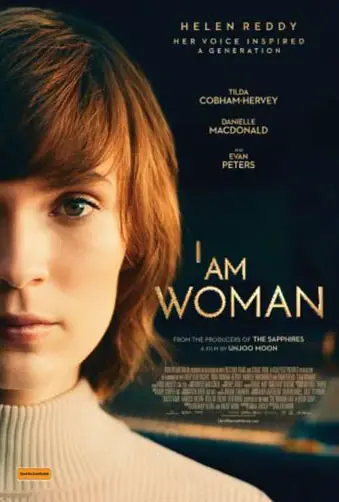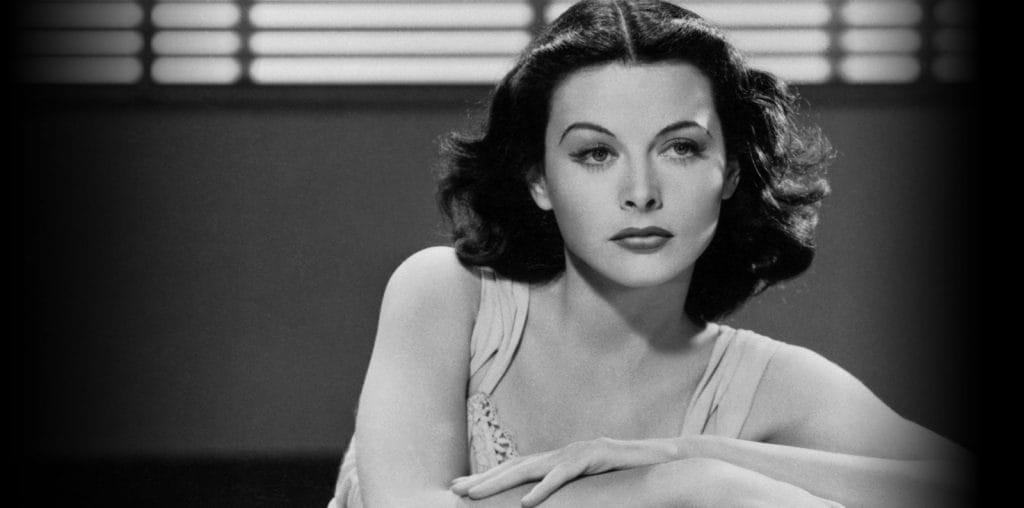
NEW TO NETFLIX! I was born at a time when singer Helen Reddy’s popularity first started to rise. My first time seeing Reddy was in Walt Disney’s Pete’s Dragon. As a child, she was my first introduction to the growing women’s movement of the 1970s. Now her life story is captured for posterity in Unjoo Moon’s biopic I Am Woman.
I Am Woman covers Helen Reddy’s life from her arrival in New York from Australia to the dissolution of her marriage to manager Jeff Wald (Evan Peters). Helen (Tilda Cobham-Hervey) came to the States to become a star and quickly learns that despite her talent, her gender would become her biggest obstacle toward success. Even though it is a story of one of the great feminist icons, it sadly hits all the typical notes, playing out like a standard biographical narrative.
In 1968, Helen Reddy arrived in New York with a promise of a record deal that falls through during her first sit-down meeting. Now stuck in the States with her daughter, Reddy takes a job as a singer in a cheesy lounge. It is not long before she finds out that she’s being paid less than the musicians, and we all know why.
My biggest beef is that I Am Woman does everything that frustrates me with biopics—it’s clichéd. Let me start by saying I liked the movie because I like Helen Reddy. Her story is a powerful one, she’s a great singer, and her story needed to be told. But the film doesn’t do Reddy nor her story any favors.

“…she’s being paid less than the musicians, and we all know why.”
I don’t know what it is, but I recognize our personal stories are varied and different. These experiences shape who we are as individuals. But somehow, I Am Woman is a story heard over and over again—paid less than men, marginalized, marries a guy who spends all her money on drugs. There are obvious biopic cliches, such as Helen’s best friend, Lilian (Danielle Macdonald), who starts the second act with a seemingly innocent cough; guess where this goes.
Another issue I have with biopics is who exactly is driving the narrative. I see this all the time. Helen’s character essentially stands in the middle of the screen, and her life’s events take place around her. The story is behind the steering wheel when it should be the subject. Events happen, and Helen reacts versus Helen being proactive and circumstances changing.
What makes I Am Woman worth watching (and recommending) is the importance of Helen Reddy’s story, predictable as it is. She is still an important role in the history of women’s equality and pop music. The other reason is the music of Helen Reddy, sung by Chelsea Cullen, as it sounds exactly like Reddy and does justice to her songs. Tilda Cobham-Hervey and Evan Peters are good as Helen and her then-husband, Jeff Wald. It’s remarkable to me that Wald, who serves as a consultant to the film, allows himself to be portrayed as such a huge a**hole.
I Am Woman is important primarily because of its subject, Helen Reddy. Her role in the modern Women’s Movement and her story needed to be told for posterity’s sake, which is why I think this film even exists. At the same time, I wish it was better than it was.

"…Chealsea Cullen...sounds exactly like Reddy and does justice to her songs."


